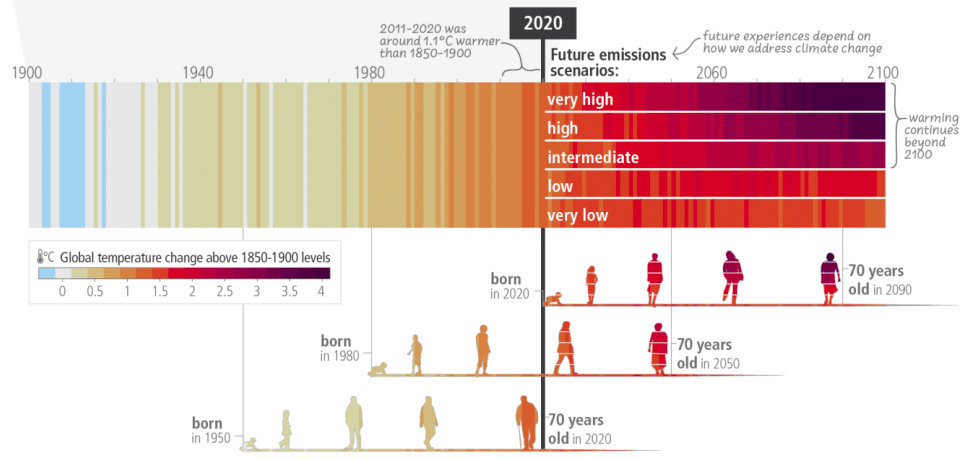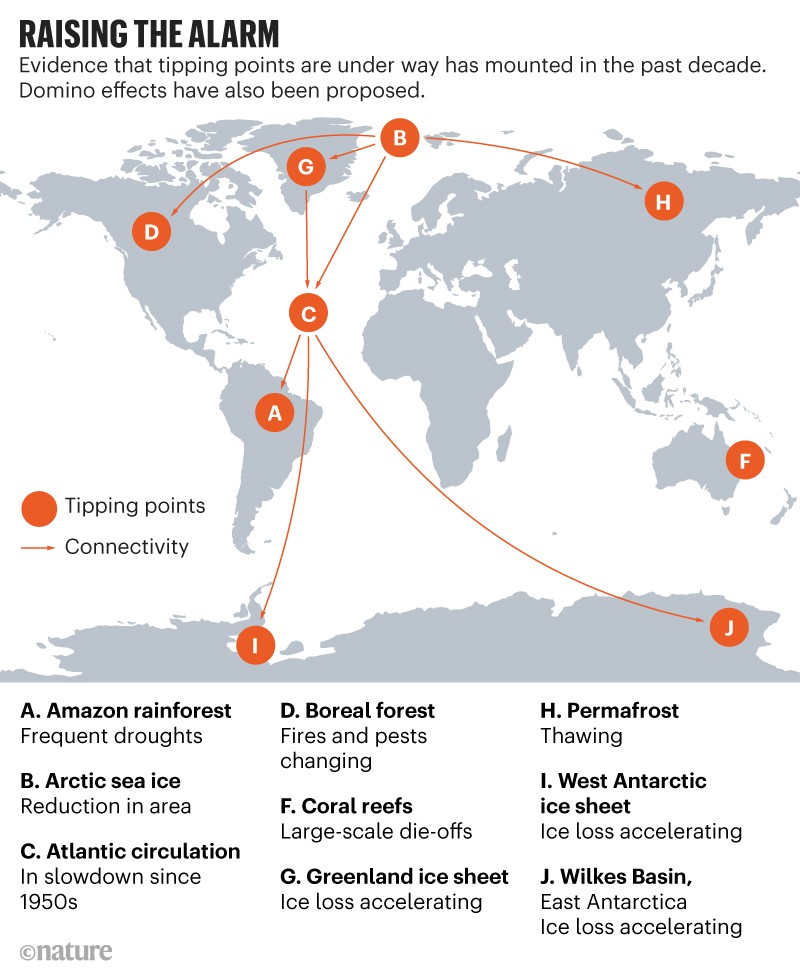Across nearly 8,000 pages, the IPCC AR6 details the devastating impacts of rising greenhouse gas emissions worldwide and outlines the risks and devastating consequences this could have on our planet unless immediate action is taken.
—
The planet is “more likely than not” to reach a 1.5C rise since pre-industrial levels in the near term, resulting in “increasingly irreversible losses,” the world’s leading scientists have warned in the fourth and final instalment of the Intergovernmental Panel on Climate Change Sixth Assessment Report (IPCC AR6) released Monday.
The long-awaited, 8,000-page report – called the Synthesis Report – summarises eight years of meticulous research conducted by hundreds of leading climate scientists and is considered the most comprehensive, best available scientific assessment of climate change ever compiled.
According to the IPCC scientists, human activities have “unequivocally” caused global warming, leading to the highest concentrations of carbon dioxide in at least 2 million years and a 1.1C rise in global temperatures above pre-industrial levels.
Approximately 3.3-3.6 billion people – about half of the world’s population – are already contending with severe food and water insecurity for at least one month per year as higher temperatures and lower precipitation rates slow down agricultural productivity. The largest adverse impacts have been observed in low-income countries throughout the Global South, despite them contributing the least to current climate change.
The IPCC, which is considered the world’s most authoritative scientific body on climate change, suggests that public and private finance flows for the fossil fuel industry today far exceed those directed toward climate adaptation and mitigation. The second instalment of the IPCC’s sixth assessment report found that developing nations will require $127 billion per year by 2040 and $295 billion by 2050 to adapt to the far-reaching consequences of climate change.
Last year’s COP27 ended with a historic deal on loss and damage compensation for low-income countries. Commenting on the achievement, Guterres said that while this will “clearly […] not be enough, […] it is a much-needed political signal to rebuild broken trust.”
Rising temperatures are also contributing to the spread of vector-borne diseases such as malaria and Lyme. Moreover, extreme weather events such as devastating floods and storms have displaced an average of 26.4 million people per year, with experts predicting that another 1.2 billion people may be displaced globally by 2050.
You might also like: Climate Migration Is the Crisis of the Century

The extent to which current and future generations will experience a hotter and different world depends on choices now and in the near term. Image: IPCC AR6.
In a recorded address for the press conference to launch the IPCC AR6, UN Secretary-General António Guterres described climate as a “ticking time bomb” and called the report a “survival guide for humanity.”
Referring to this year’s “Best Picture” Oscar, Guterres also urged world leaders to do “everything, everywhere, all at once” to limit heat-trapping emissions, starting with phasing out oil, gas, and coal completely.
And yet, the world’s top two annual emitters are still investing heavily in fossil fuel infrastructure. The scientific imperative comes just days after the world’s second-largest polluter, the US, authorised new oil drillings in Alaska, which will unlock an estimated 240 million tons of planet-warming CO2 emissions over three decades, the equivalent of adding 2 million gas-powered cars on the road each year. And a recent report suggested that last year, China approved a record number of new coal projects, more than all other nations combined.

Impacts are driven by changes in multiple physical climate conditions, which are increasingly attributed to human influence. Image: IPCC AR6.
Every added degree of global warming “will intensify multiple and concurrent hazards” and trigger so-called tipping points, which the IPCC defines as “critical thresholds in a system that, when exceeded, can lead to a significant [and often] irreversible change in the state of the system.”

The tipping points of climate change. Image by Vote Earth Now
Reiterating the findings of the 2022 IPCC report, the researchers said that we have the tools needed to slash emissions across all sectors – such as renewables, which are on track to become the largest source of global energy – and that carbon capture is among the key ones. There are many natural tools to achieve negative emissions, such as reforestation (and stopping and reversing deforestation) of tropical forests and mangroves, but direct air capture, including the Orca facility in Iceland, is rapidly gaining traction and can make a huge difference in the fight against global warming, experts argue.
In response to the IPCC AR6 publication, Peter Thorne, director of the Icarus climate research centre at Ireland’s Maynooth University, said that while “we will, almost regardless of the emissions scenario given, reach 1.5C in the first half of the next decade, […] the real question is whether our collective choices mean we stabilise around 1.5C or crash through 1.5C, reach 2C and keep going.”
“We need to think how future generations will look back at us as a generation that had the full knowledge. The choices and actions implemented in this decade will have impacts now and for thousands of years.”
You might also like: World On Track To Warm Above 2C As Greenhouse Gases Surge, UN Report Warns


















